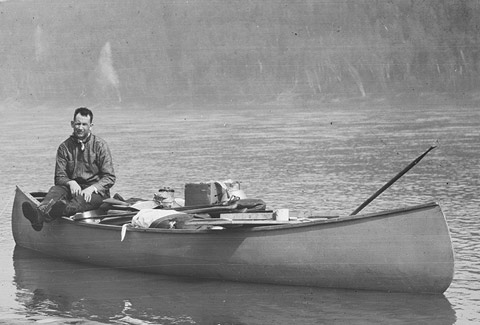When Harold Innis set off to explore the history of the fur trade in Alberta’s Peace River basin, he was limping from a shrapnel wound that had ripped open his leg at Vimy Ridge. But by the time the junior assistant professor returned to U of T, he was able to throw away his cane.
A summer in the northern hinterland did more than restore Innis’s health. It prompted the political economist to give Canadians a new vision of their country. Then, our jagged landscape was seen as an obstacle to overcome. Innis countered that Canada developed because of its geography, not in spite of it.
In his “staples thesis,” he argued that Canada’s exports of fur, timber, fish, fossil fuels and other commodities shaped its cultural and political development. Innis was the first to point out that Canada’s economic reliance on producing raw materials made it vulnerable to the whims of Britain, the U.S. and other manufacturing nations.
In his long career, Innis also wrote seminal books on communication, inspiring Marshall McLuhan to the point that McLuhan became his intellectual disciple.
This year, Innis College, U of T’s only college to be named after a scholar, is celebrating its 50th anniversary by honouring its namesake. One event planned for November will feature communication theorists who, as Innis did, have a vision to share. Janet Paterson, the college’s principal, points out that many of Innis’s programs continue to further the scholar’s legacy. “The college reflects some of Harold Innis’s far-reaching ideas on communication with its vibrant programs in film, writing and rhetoric, and urban studies.”
Recent Posts
People Worry That AI Will Replace Workers. But It Could Make Some More Productive
These scholars say artificial intelligence could help reduce income inequality
A Sentinel for Global Health
AI is promising a better – and faster – way to monitor the world for emerging medical threats
The Age of Deception
AI is generating a disinformation arms race. The window to stop it may be closing





